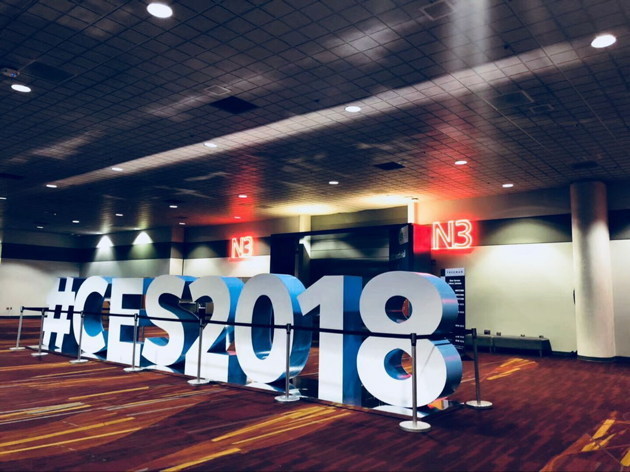Jan. 12 (NBD) -- CES (Consumer Electronics Show), serving as the proving ground for innovators and breakthrough technologies, kicked off on Tuesday and runs until Friday in Las Vegas and will see the biggest names in the industry.
Over 4,000 enterprises from more than 150 countries and regions participated in the grand gathering, presenting new products and technologies to 170,000 "geek" innovators and pointing the direction for the technological development in the coming year.
NBD noticed at the scene that "Artificial Intelligence (AI)""Chinese Enterprises""Smart Home and 5G" are the hotspots at the show.
The technology of voice interaction, as the portal to smart homes, constituted the highlight of products displayed by internet giants, home appliance leaders and innovative enterprises.
Giants compete to release voice interaction products
Amazons Alexa, which grabbed firmly the limelight last year, now has new frenemies. Samsung Bixby, Google Assistant and Baidu DuerOS at CES 2018 attracted enough eyeballs and were embedded in more and more devices this year.
At this stage of technological development, voice interaction, image recognition and autonomous driving are the most common application scenarios of AI technology and the first two have been successfully commercialized.
Despite at its early stage, voice assistant represents a future tend. So far, industrial giants have made hefty investments in this field.
Executives of Samsung on the spot introduced that by 2020, the company will intelligentize all its products. According to Samsung, voice interaction is a good entry point to facilitate the interconnectivity of smart devices.
Samsung also announced that Bixby will be integrated into more devices such as Samsung TVs. Bixby is Samsung's answer to Apple's Siri, Amazon's Alexa and other voice assistants.
The voice interaction is applied more widely in the sector of smart home control from originally entertainment functions like music listening.
Google Assistant will be embedded into smart home devices of Insteon, a leading developer of IoT technology for the home, Sense Smart Deadbolt door locks of Schlage, ceiling fans of Hunter and smart speakers of LG.
Amazon's Alexa will be used to control speakers/routers of Asus and smart washer/dryer of Whirlpool.
The global provider of market intelligence and advisory services, International Data Corporation (IDC), estimated that 27 percent of smart homes, 51 percent of intelligent vehicles and 68 percent of smartphones and wearables will be equipped with smart voice assistant by 2020.
Jing Kun, general manager of Baidu's Duer business unit said in his speech that China's voice assistant devices applied in the smart household and automobile industries have sustained a surprisingly high market penetration and growth.
China boasts a huge market for application of voice assistants with its over 400 million families, 200 million cars and more than 1 billion smartphones.

Photo/NBD
An ecological development entails seamless combination of hardware and software
Steve Wozniak, co-founder of Apple, once said that speech technology will become the next platform for the computer realm. The speech technology and the AI technology powering it will facilitate the interaction between the Internet and the real world. Every big company is trying to keep their customers inside their ecosystem.
It's noteworthy that Amazon, Google and Baidu are pursuing an ecological development which entails the seamless interconnection of software and hardware.
Li Yanhong, chairman and CEO of Baidu, repeatedly mentioned "ecologicalization" in his speeches, noting that the combination of software and hardware will be an important development direction of AI products.
Amazon and Google have launched speaker Echo and Home respectively and both achieved sizzling sales globally and Baidu just released several hardware products including Raven H.
It seems that smart speakers have become the point of penetration to crack the hardware market.
However, problems including natural language understanding remain to be solved through concerted efforts of every tech company.
The natural language operating system is more difficult to build than the Android and iOS system and cooperation should be forged not only with hardware manufacturers and software developers, but also with chip makers, Jing Kun commented.
This means that to establish a sound language operating system can't be done by one enterprise solely and collaboration based on an open and inclusive platform is a necessary.
Email: gaohan@nbd.com.cn


 川公网安备 51019002001991号
川公网安备 51019002001991号





